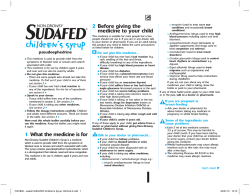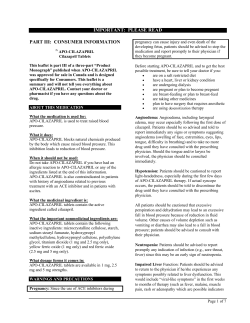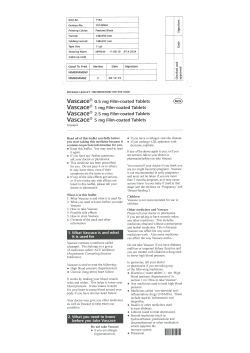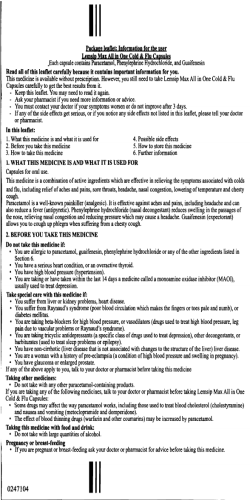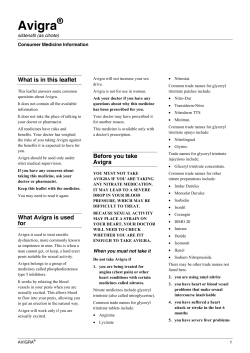
M I PROPRANOLOL
MEDICINES INFORMATION PROPRANOLOL Pronounced: Pro-pran-o-lol What is propranolol used for? Propranolol belongs to a group of drugs called beta-blockers. It is used to help manage many conditions such as heart and blood pressure problems, chest pain (angina), disorders of heart rhythm and prevention of migraines. Propranolol can also be used to control the physical symptoms of anxiety and may also help people with restlessness. Medicines are often used to treat more than one condition, so if you are not sure why you have been prescribed propranolol, you should discuss this with your doctor. Your medicine may also have a trade or brand name. This is the name that the manufacturer gives to the medicine, for example Inderal is a brand name for propranolol. What are the benefits of taking propranolol? People with anxiety may feel uneasy because they may worry, feel nervous and tense or may be fearful. These feelings may be experienced as physical symptoms such as sweating, irregular or unusually fast heartbeat, butterflies or cramps in the stomach and tremor (feeling shaky). There are different types of anxiety disorders and these may be mild or severe. An example is panic disorder when people sometimes feel panicky or frightened and may try to change their life to avoid situations that make them feel like this. Another example of an anxiety disorder is generalised anxiety disorder where people may experience symptoms most of the time. The symptoms may include sleep problems, worry, difficulty in concentrating and feeling constantly on edge. People taking medication for schizophrenia and depression may experience symptoms of restlessness, which is known as akathisia. This means that people are unable to sit still and keep moving all the time. This can make people feel quite uncomfortable. Propranolol can help relieve these symptoms as well as help people engage better with other kinds of therapies such as psychological treatments which may be helpful. How quickly does propranolol work? Propranolol will start to work quite quickly. Some symptoms may start to improve before others, but it usually takes at least a week until it has a full effect. Not everybody benefits from propranolol, but most people do. If you do not feel any benefit or improvement in your symptoms, you should discuss this with your doctor or healthcare worker. What is the usual dose of propranolol and how should I take it? The usual dose of propanolol for akathisia (restlessness) or anxiety is between 40milligrams (mg) and 120mg daily usually given in two or three divided doses. Do not change your dose of propranolol without checking with your doctor, as it can affect your response to the medication or may be harmful. What should I do if I miss a dose? You will get the most out of your medication when taken correctly. If you miss, or forget a dose at your usual time, but remember within an hour or two then take it straight away. If it is longer than this just leave out the missed dose and take the next dose at the usual time. Never take extra medication at the next dose. If you find it difficult to remember taking medication speak to your pharmacist or healthcare worker. For how long should I take propranolol? ® Your doctor will discuss with you the length of treatment, which will vary depending on the type of illness or symptoms you have. Your doctor should regularly review your medication to make sure that you do not take medicines for longer than needed. Propranolol is not addictive. What are the side effects of propranolol? As with all medicines there is a risk of unwanted effects (side effects). Some can occur soon after starting treatment so you may experience these before you feel better. Most are temporary and should go away after a few days or weeks. Not everyone will get side effects and people experience them to different degrees. If you feel that you have side effects that are causing you discomfort, discuss this with your doctor, pharmacist, nurse or healthcare worker. The table on the following page lists some of the main recognised side effects of propranolol. What about alcohol and ‘street’ drugs? Both alcohol and propranolol can affect the brain so it is not recommended that you drink alcohol while taking propranolol. Drinking alcohol can cause drowsiness and in combination with propranolol can cause severe drowsiness. Once you are used to the medication and know the effects of taking alcohol you may be able to drink alcohol occasionally and in small amounts. It is good to be cautious because alcohol affects people in different ways, especially when taking medication. Do not stop taking your medication because you feel like drinking alcohol. If you drink alcohol, drink only small amounts. Never drink alcohol and drive while taking medication. ‘Street’ drugs (for example, cannabis, ecstasy, speed, heroin and cocaine) can also often affect your treatment. There is very little information on taking propranolol with ‘street’ drugs and so the effect and safety of doing this is unknown. It is best if you do not take ‘street’ drugs whilst taking propranolol. You may need to get advice and support to help you do this. What about other medicines? If you take any other medicines or herbal remedies including any that have been newly prescribed or bought, it is important to check with your doctor or pharmacist that they are safe with propranolol. When should I be cautious? It is usually safe to take propranolol regularly, as prescribed by your doctor, but it is not suitable for everyone. If any of the following situations apply to you, you should tell your doctor immediately: 1 If you are allergic to propranolol (if you have taken it before and developed a rash, itching, swollen mouth or throat); 2 If you have diabetes, epilepsy (or have had a fit in the past), Parkinson’s disease, suffer from kidney, liver or heart disease; 3 If you have low blood pressure or slow heart beat; 4 If you suffer from angina (heart pain); 5 If you have breathing difficulties (eg wheezing or asthma); 6 If you suffer from dementia; 7 If you are pregnant, or are planning to become pregnant; or 8 If you are breastfeeding. Side effect Dizziness Feeling light-headed and faint. What should I do if it happens to me? Do not stand up too quickly. Try and lie down when you feel dizzy. Do not drive. Speak to your doctor over the next few days if this continues after a couple of weeks. Insomnia Not being able to sleep, or waking up earlier than usual. Try taking medication in the morning. If this does not help, speak to your doctor at your next appointment. Wheeziness Blurred vision What is it? Shortness of breath. Difficulty breathing. High-pitched, whistling sound produced during breathing. Things look blurry and you cannot focus properly. Speak to your doctor over the next few days if this continues or gets worse. Do not drive. Speak to your doctor over the next few days if this continues or gets worse. Visual disturbances Flashing lights or black spots or herringbone patterns. Do not drive. Speak to your doctor over the next few days if this continues or gets worse. Upset stomach Feeling or being sick. You may also have loose bowel motion. Reduce coffee, citrus fruits, fatty foods, onions, alcohol and chocolate intake. Drink plenty of water. Hypotension A low blood pressure. You may feel faint or dizzy when you stand up. Speak to your doctor immediately. Bradycardia Slowing of the heartbeat. Speak to your doctor immediately. Cold extremities Your fingers and toes feel cold. This is most common at the start of treatment. It should settle after a couple of weeks. If this continues after a couple of weeks, speak to your doctor at your next appointment. Aggravation of psoriasis Your psoriasis symptoms become worse than usual. Speak to your doctor over the next few days. Confusion Unclear thoughts. Drowsiness Feeling sleepy or sluggish. Dry eyes Irritation; may be gritty or burning in the eyes. Hair loss Loss of hair on head. Rashes Red rashes on skin that may be itchy. Sexual dysfunction Change in sex drive or sexual ability, for example lack of orgasm, abnormal erection and ejaculation. Speak with your doctor over the next few days if this continues or gets worse. Do not drive or use machinery. This is most common at the start of treatment. If you take your medicine once a day it may help to take it at bedtime. If this continues for more than a couple of weeks speak to your doctor over the next few days. Speak to your doctor at your next appointment or your pharmacist as you may be able to use eye drops to help. Speak to your doctor at your next appointment if this is becomes noticeable. If the rash is severe or does not go away, contact your doctor over the next few days. Speak to your doctor at your next appointment. . Please refer to the manufacturer’s patient information leaflet that comes of any inaccuracy or error contained in this leaflet, including (for the with your medicine for more information and the full list of side effects avoidance of doubt) in relation to breach of contract, misrepresentation and precautions. If you have any questions or concerns about your or negligence whether of CNWL or any other person; but nothing in this medicines, or if you are worried about anything you think might be a side leaflet shall exclude or restrict liability for death or personal injury effect, ask your doctor, pharmacist or nurse. resulting from negligence. This leaflet gives you some information about this medicine. It does not The information given in this leaflet is current as at the publication date. replace the expertise or judgement of a doctor, pharmacist or other This leaflet has been written by Central and North West London NHS healthcare professional. It is not a manufacturer’s patient information Foundation Trust, Greater London House, Hampstead Road, London leaflet and is not to be taken as a substitute for, or an endorsement of, NW1 7QY. Tel: 020 3214 5700 Publication Number: CNWL/MM004 Publication Date: May 2007 Copyright 2007 the manufacturer’s information or advice in respect of any medicine referred to in this leaflet. You might find more information in other leaflets or books, or on the internet but remember, the internet is not always accurate. Whilst every care has been taken in the compilation of this leaflet, CNWL is not responsible for any loss or damage howsoever caused as a result
© Copyright 2025



